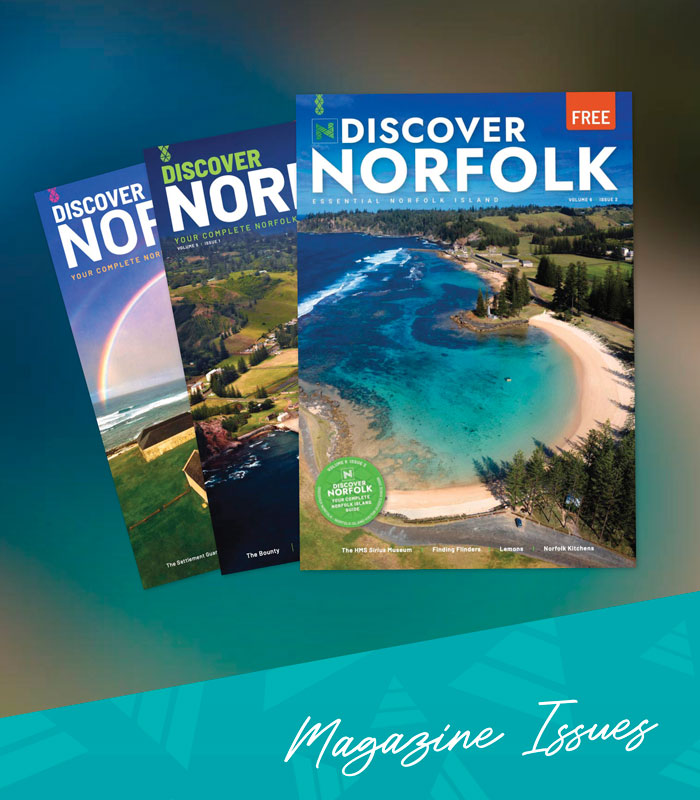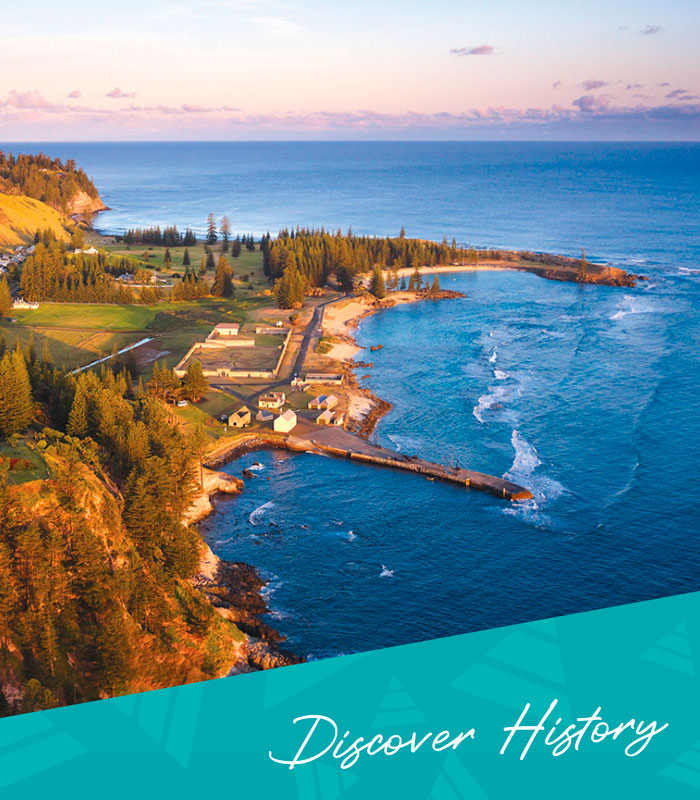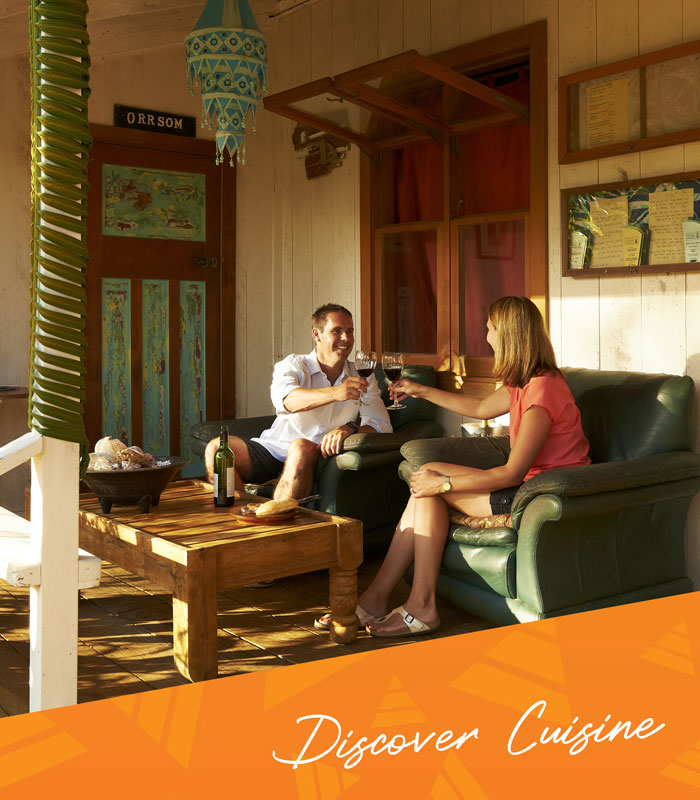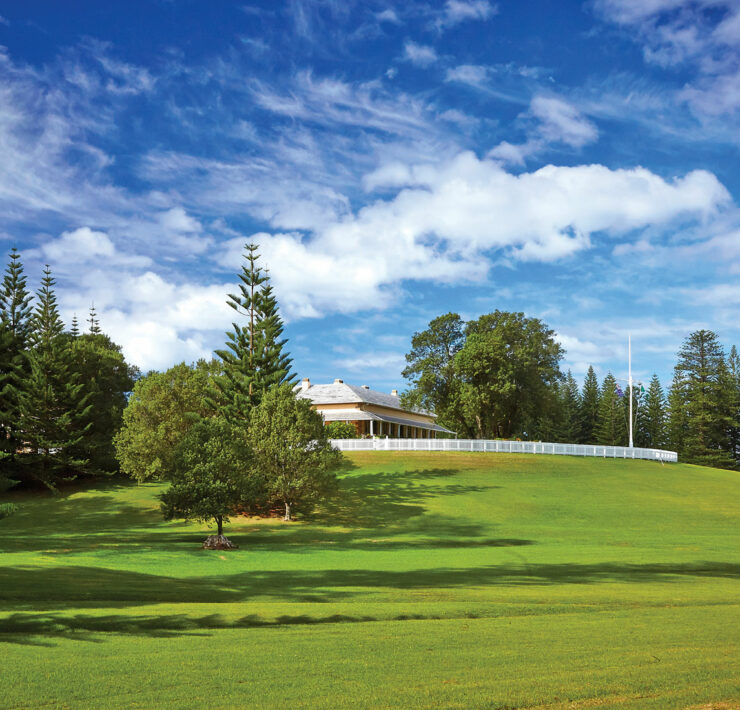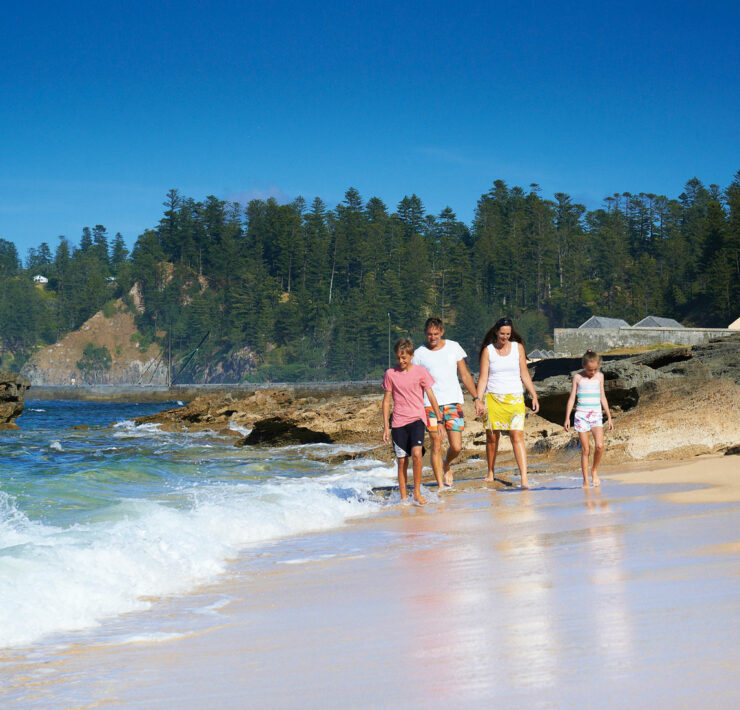Home » All Articles » Food Miles to Food Metres: Norfolk’s Healthy Exchange Rate
Food Miles to Food Metres: Norfolk’s Healthy Exchange Rate

Are you a ‘locavore’? Your body and the environment hope you are, as does your local economy! If you are reading this article whilst on Norfolk Island soil, then being a locavore will require little effort – particularly if you like fresh food! Used to describe those who endeavour to eat locally produced food, the word ‘locavore’ was the Oxford American Dictionary ‘Word of the Year’ in 2007, and reflects a worldwide trend towards sustainability and consciousness of the foods we consume. A locavore questions how far food has travelled before it ends up in their mouth – how many ‘Food Miles’ it has clocked up from its point of production to consumption, and the environmental impact of the journey. In addition to this awareness, consumers are increasingly hungry for the nutritional benefits of fresh and seasonal home grown produce – in essence they are putting a magnifying glass to what they eat. If the idea of scrutinising your food seems laborious, then imagine a place where 99% of the fresh food is grown within a 3km radius. A place where ‘Food Metres’ may seem the most appropriate term! Welcome to Norfolk Island,a Pacific paradise with an organically intimate relationship with food.
Norfolk is one of the last remaining Islands in the world where fruit and vegetables are not imported. Only potatoes, onion, garlic and ginger are brought in from overseas, although local varieties of these are available seasonally in smaller quantities. With numerous native wildlife and more than 200 native plant species on Norfolk to protect, keeping the Island free of introduced diseases and pests is a major priority. So while this may imply that the stomachs of Islanders sacrifice much for the sake of the Island’s native flora and fauna, this is far from the truth. Local growers provide ample fresh produce to the Island and many residents grow their own fruit and vegetables. Visitors constantly marvel at the grandiose taste of Norfolk’s fresh produce; one bite of a delicious Norfolk tomato is often enough to undermine the appeal of mass variety and convenience. It may sound as if Norfolk Island is following a new culinary trend – though Norfolk’s appeal as a food destination is, literally, a refreshing taste of the old world.
Norfolk Island’s connection to food goes as far back as the first European settlement, when Norfolk was the food bowl for the starving settlement in Sydney. When the Pitcairn settlers arrived in 1856 the Island was set-up for agricultural purposes, to which the Islanders applied their own sustainable farming practices and a hard-working ethic to provide for their small community. On Norfolk it’s impossible to separate food from all other aspects of an Islander’s identity, as it interweaves through their history, culture and lifestyle. Even the Norfolk word for food, ‘wetls’ – a Polynesian pronunciation of the old English word ‘victuals’ – alludes to the infamous Mutiny on the Bounty and the resulting mixed community on Pitcairn. The traditional ‘coconut pie’ of the Norfolk Islanders seems out of place on an Island without coconuts, yet the story trails back to the staple diet of their ancestors on Tahiti and Pitcairn. Food on Norfolk is not just about sustenance, but an indelible part of who they are. Working in synergy with the land around them is ingrained behaviour, and ancient pride is at stake when it comes to culinary matters. So today, whether you desire a café meal, a club meal, takeaway or fine dining, you can be assured that the fresh produce has been grown consciously and with care – and only a short distance from your plate.
Behaving in a sustainable manner ensures that the practices you undertake can be done repeatedly without causing needless detriment. When applied to the environment and the concept of Food Miles, it means that the natural world cannot sustain the enormous use of petroleum to produce synthetic fertilisers and transport food. As applied to the human body, repeated ingestion of chemicals – even tiny amounts of residue on fresh produce – can accumulate in the body over time and result in bad health. Norfolk’s largest supplier of fresh produce, Matt Bigg, has always farmed using a non chemical, organic approach, and takes great satisfaction from the knowledge that his efforts result in highly nutritious food for the community. There is no need for preservatives, or for food to be picked green and ripened artificially to last the long journey – in fact, the journey is so short there’s a high chance of purchasing the very same leafy greens that wave at you from the back of Matt’s truck! Norfolk’s local fishermen put their fish scraps into their gardens as fertiliser, and restaurants save their food scraps to give to chooks, dogs or local pig owners. Everyone on Norfolk benefits from the symbiotic relationship that Islanders have with the land; a relationship borne from survival, and one that is now becoming a showpiece for biological agriculture.
Many of us forget that the Earth’s natural cycles are responsible for which foods are in season, forming a natural backdrop for our diets. Modern food processing and worldwide distribution of foods mean year-round availability, which goes against the grain of natural diversity. Foods that are grown out of season or transported long distances from different climates are subject to vitamin degradation and nutrient loss, yet the norm in modern society is to compromise taste and quality for convenience sake. Recently, however, there has been a huge shift towards ‘seasonality’ – basing your diet on which foods are naturally in season and therefore the most beneficial for your health. On an Island such as Norfolk, where out-of-season produce is not imported, the bodies of residents are blissfully unaware of their good fortune. As a visitor, simply go to the grower’s market on Saturday morning and choose from a selection of chemical-free seasonal produce. Keep that loose change for the honesty box of a roadside fruit and vegetable stall, or look to the blackboard in a restaurant for which items have been crafted from seasonal produce. Now, relish the flavour. It’s easy to forget that this is what fruit and vegetables are supposed to taste like.
Most, if not all, Norfolk food outlets consider both seasonality and sustainability when creating their menus or obtaining fresh produce. Some, such as the popular out-of-town Dino’s restaurant, have built from this foundation to great success. Restaurateurs Dean and Helen infuse a love of local produce into their menu, and grow a substantial amount of fresh food on the grounds of the restaurant, which is also their home. They frequently duck out of the restaurant during service to obtain the freshest herbs, fruits or spice, and Helen is famous for her homemade seasonal fruit ice cream. Situated in town is the Hilli Restaurant and Wine Bar, which is well known for innovative and delicious food, and more recently their ‘Mastering Taste Chef School and Garden Tour’. The tour promises a new cooking experience, which allows the public to witness the intimate hands-on and homegrown relationship to the food that is served at Hilli’s. And if you’re still not convinced of the great pride Norfolk residents take in their local produce, then visit Norfolk Blue, a restaurant named after the hand-reared breed of cattle that graze in the 100acre farm surrounding the restaurant.
It’s easy to be confused by which foods are necessary for optimal health – it seems like there’s a new ‘superfood’ every week, and each one is essential to the daily diet. So it’s relieving to take a step back and realise that maintaining a healthy body and healthy environment is actually quite simple – just think like a locavore! Where possible, consume seasonal vitamin-rich food, free from harmful chemicals and produced as locally as possible. Or, alternatively – if this sounds like too much work – just spend some time on beautiful Norfolk Island where you have little other alternative. Quite simply, Norfolk food has soul. It loses little of its value from production to consumption, and the hands that have caught, cultivated or reared the fresh produce have done so mindfully and with care. The inaccessibility of certain foods – which has been viewed as an inconvenience – has in fact been the very impetus for Norfolk’s dedication to their local produce, and the reason that Norfolk Island is becoming known as a food destination. It seems people are excited about a sparkling gem in the South Pacific protected from the mainstream. A place where you can convert your Food Miles into Food Metres, and be handsomely rewarded by the healthy exchange rate!
____
Image Credit: Robin Nisbet
www.robinnisbet.com
____
Article content disclaimer: Article first published in YourWorld, Volume 02 Issue 04, 2012. Please note that details of specific travel, accommodation and touring options may be outdated. References to people, places and businesses, including operating days and times may be have changed. References to Government structure and Government businesses/entities may no longer be applicable. Please check directly with businesses and/or Government websites directly rather than relying on any information contained in this article before you make travel arrangements.


